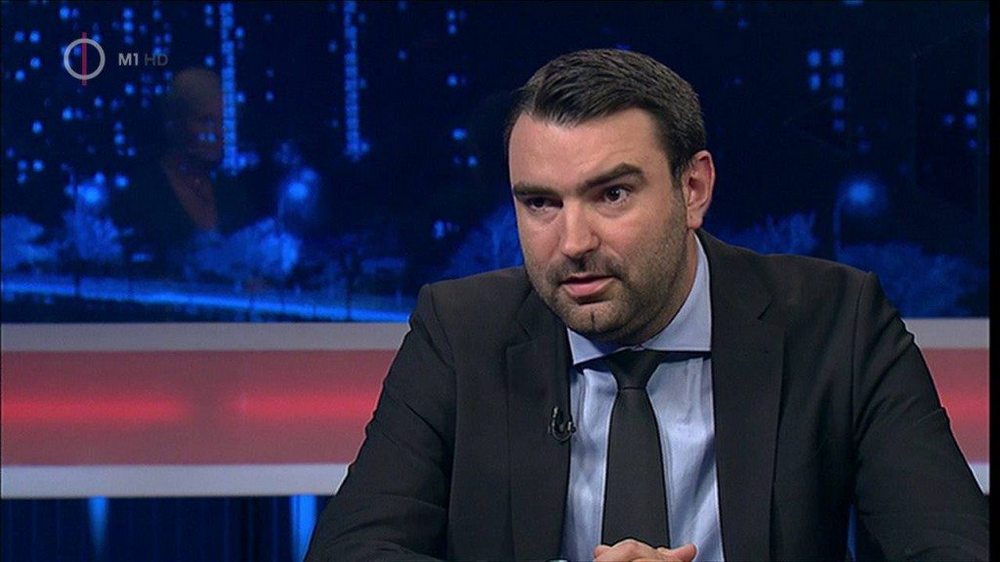I. Amendment of Articles of Association
In the European Union, Community Treaties (founding treaties) can only be amended within the framework of a procedure specifically aimed at this, as the European Court of Justice ruled in 1976 (in the Defrenne case). The Luxembourg panel later supplemented this finding by stating that instruments such as the declaration attached to the Treaty or the decision of the heads of state or government, which aim to clarify certain provisions, can serve as "interpretation tools" of the Treaties (Rottmann case, 2010).
EU Treaties can be amended in two ways based on Article 48 (1) of the Treaty on European Union (TEU). This is how we distinguish the so-called ordinary review procedure, as well as a simplified review procedure.
The regular revision procedure is necessary for key amendments, and when the amendments expand the Community powers, because these can only be done by intergovernmental consensus. On the other hand, the simplified amendment procedure allows for changes in matters of minor importance, as well as for the adjustment of the Union's internal policies and activities, which does not mean an expansion of the powers conferred on the EU.
The European Convention must be convened in the event that the Treaties are amended within the framework of the normal review procedure. The Convention: an occasionally convened international conference to discuss some fundamental issues and to prepare appropriate decisions within the framework of the EU.
During a regular review, the government of any member state, the European Parliament or the Commission may submit a proposal to the Council to amend the Treaties, and these proposals may, among other things, be aimed at expanding or narrowing the powers previously granted to the EU. The Council forwards the proposal to the European Council and notifies the national parliaments [Article 48 (2) of the EU Treaty]. If, after consultation with the Parliament and the Commission, the European Council supports the discussion of the proposed amendments by a simple majority, then the President of the European Council convenes a Convention consisting of representatives of national parliaments, representatives of heads of state or government, and representatives of the European Parliament and the Commission convene [Article 48 (3) of the TEU]. In the case of institutional amendments affecting the monetary area, it is also necessary to consult with the European Central Bank. The Convention examines the proposed amendments to the Treaties and may adopt recommendations by consensus for the conference of representatives of its national governments [Article 48 (3) TEU].
In matters of minor importance, the Treaties can be amended without convening a Convention. In such a case, the European Council (the body of the government and heads of state) after the agreement of the Parliament, decides with a simple majority not to convene the Convention, and the European Council determines the mandate of an intergovernmental conference to be held with the participation of representatives of the governments of the member states [Article 48 (3) of the EU Treaty ]. In other words, in such cases, it is not the President of the Council who convenes it to define amendments to the Treaties by mutual agreement [Article 48 (4) EUSZ], as in the classic review. In both types of procedures, the adopted amendment enters into force only after it has been ratified by all member states in accordance with its constitutional requirements [Article 48 (4) of the TEU].
The Council makes decisions in one of four ways: by strict unanimity between all 27 national governments; by consensus, as a form of loose unanimity sometimes facilitated by the constructive abstention of the minority; by a simple majority of its members; or by qualified majority voting.
There are two types of qualified majority voting: the first requires a threshold of 55% of member states, which covers 65% of the population; the second - called a "super qualified majority" or "double majority" - requires 72% of the member states. As a blocking minority, at least four states can suspend qualified majority voting and submit the matter to the European Council for further discussion.
II. Amendment of the Treaty of Rome with federal tendencies - the crisis of 1966
All five revisions of the founding Treaty of Rome – Single European Document, Maastricht, Amsterdam, Nice, Lisbon – expanded the number of decisions that can be taken by qualified majority and reduced the scope of the national veto.
Already with the Single European Document signed in 1986, they wanted to amend the Treaty of Rome in such a way as to complete the internal market as much as possible, and they also wanted to reduce the number of policy areas in which unanimity was required for the adoption of legislation.
There have been cases in the history of the Union when, due to the lack of unanimity, a separate treaty was concluded within a certain circle of EU member states. The Schengen Treaty and Convention of 1985 and 1990 were adopted in this way, but after that the Treaty of Amsterdam nevertheless incorporated it into EU law, and the other member states that did not sign the treaty were given an opt-out from the implementation .
In 1966, a "unanimity crisis" emerged during the voting procedures within the Council, because already then - in some areas - the rule for unanimous decision-making was to be replaced by qualified majority voting. President de Gaulle's France strongly objected to many of the commission's proposals, for example regarding the financing of the common agricultural policy, so the French did not appear at the most important meetings (this was the "empty chairs" policy). In the end, this dispute was settled within the framework of the Luxembourg compromise, which stated that if the fundamental interests of one or more member states are at stake, the members of the Council are obliged to seek a consensus solution during EU disputes based on mutual interests (this can also be said that the positions of the nation states should be taken into account if possible).
As the most recent amendment to the founding treaties, the Treaty of Lisbon, which entered into force in 2009, increased the number of policy areas subject to qualified majority voting in the Council (essentially weakening the veto). All these processes can be interpreted as steps towards the federalization of the community.
At the same time, unanimous voting is still required in a limited number of sensitive policy areas: for example, taxation; in the field of social security or social protection; upon the accession of new EU member states; in the framework of the common foreign and security policy, including the common security and defense policy; also in operational police cooperation between member states.
III. The veto as a tool of the nation-state
A veto is a tool intended to prevent the unanimity of votes and the power for a member state to unilaterally prevent the entry into force of an official act, usually a decision or legislation.
One of the most striking examples of the European veto tradition was when French President De Gaulle vetoed Great Britain's accession to the European Economic Community in 1963, as he lacked the necessary political will from the British leadership for the country to be part of "a strong Europe". Four years later, De Gaulle also vetoed the United Kingdom's second attempt to join.
Another energy-related example: in March 2002, at a meeting of the Economic and Financial Formation of the Council (ECOFIN Council), France vetoed a proposal to open the electricity and gas markets to households (although all member states accepted the resolution that later set a roadmap for commercial users of the energy market for the liberalization of
An example of vetoes against EU enlargement was that in December 2008, Slovenia blocked accession negotiations with Croatia due to the border dispute between the two states (Croats finally joined the EU in 2013).
There were also differences of opinion regarding the economic superpowers outside of Europe. For example, in April 2016, Britain blocked an EU proposal to raise Chinese steel tariffs, which, according to the official position, could have protected European industry from cheap imports.
Citing a tax policy example: in the spring of 2019, in the Council, Denmark, Finland, Ireland and Sweden also vetoed the initiative to tax large digital companies - an agreement on this would have been reached in 2020, according to the plans.
In October 2019, at a meeting of EU leaders responsible for general affairs, France vetoed talks on opening up EU membership to North Macedonia and Albania – although the Netherlands, a long-time opponent, turned out to be partly supportive – arguing that no date should be set for the start of accession talks until the European Union is not renewing its entire approach to the enlargement process.
In November 2020, Hungary and Poland used the legitimate tool of the decision-making veto when approving the EU budget due to a planned clause that would have bound legitimate community funding to the observance of the rule of law for the countries concerned. The package included 750 billion euros, with a post-Covid recovery fund. The ambassadors of the 27 EU member states in Brussels were ultimately unable to accept the budget because the two Central European countries vetoed it.
The right of veto is thus clearly an important, fundamental means of influence in the hands of nation-state governments - maintaining it is therefore an essential EU value. The right of veto itself can be interpreted as a "principle", as it provides a legal guarantee for the representatives of the minority position to complete the given procedure - to prevent the new, unsupported legislation, but in the appropriate case, a decision that is intended to be made against the will of the majority.
In principle, the abolition or weakening of the right of veto in the Treaties can be initiated by any member state, as well as by the European Parliament or the Commission, however - according to our current knowledge - based on the community legal practice and framework, this is a specific "deadlock" due to the unsupportive position of even a single member state. as a decision-making situation, it would not appear to be an intention to successfully implement change.
Source: alaptorvenyblog.hu
Photo: hirado.hu













